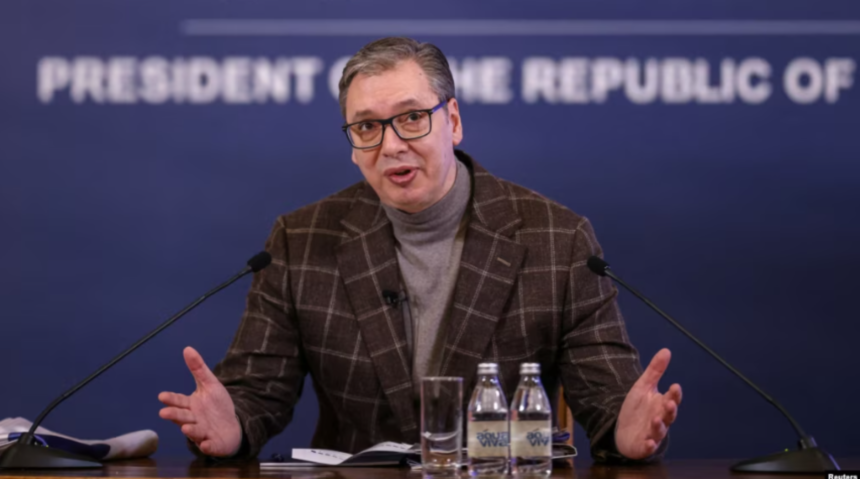Serbian President, Aleksandar Vucic, stated on Wednesday that there are numerous issues to discuss with NATO Secretary General Mark Rutte ahead of their meeting in Brussels.
He mentioned the need to discuss bilateral relations between Serbia and NATO, the situation in Bosnia and Herzegovina, and Serbia’s relationship with NATO’s mission in Kosovo, KFOR, and “Kosovo and Metohija” – a reference to the state of Kosovo.
“I don’t know if this dinner will be enough to discuss all these topics. Mark Rutte has been very fair with Serbia so far, and I am grateful for that,” said the Serbian president in a Facebook post, expressing hope that there will be better cooperation between Serbia and NATO in the future.
Earlier in the day, he met with EU Commissioner for Enlargement, Marta Kos, and other officials in Brussels, where he expressed hope that Belgrade would open new chapters for EU membership.
On March 19, Vučić told reporters that he had discussed Serbia’s obligations on the path toward EU membership with the officials in Brussels.
“We need to be more aligned with the EU when it comes to foreign policy statements and sometimes vote on resolutions related to the Russian Federation, although I cannot promise this because I don’t want to lie to them or to you,” Vučić said.
Serbia’s path to the EU has been blocked since the start of Russia’s war in Ukraine, due to Belgrade’s refusal to join Western sanctions against Russia, and it has continued to maintain close ties with Moscow.
A group of EU lawmakers and various political groups have called on the President of the European Commission, Ursula von der Leyen, to reconsider a scheduled meeting with Vučić and to “send a clear message that Serbia needs a transitional government,” following the resignation of Miloš Vučević from his position as Serbian Prime Minister.
“The Commission President’s meeting with Vučić sends a worrying signal, considering the severe political crisis in Serbia,” EU lawmakers said in a letter sent to von der Leyen, as reported by the Radio Free Europe Balkan Service.
It was noted that in recent months, Serbia has faced “the largest protests in the state’s history,” and that student-led protests “highlight the public’s demand for accountability, transparency, and democratic reforms, values on which the EU was founded.”
Students and other citizens have been protesting for months in Serbia, demanding accountability from authorities for the deaths of 15 people caused by the collapse of a concrete shelter at the Novi Sad railway station on November 1 of last year.
Students held a massive protest on March 15 in downtown Belgrade and vowed to continue their marches, despite authorities claiming that they have met their demands, according to Radio Free Europe.







